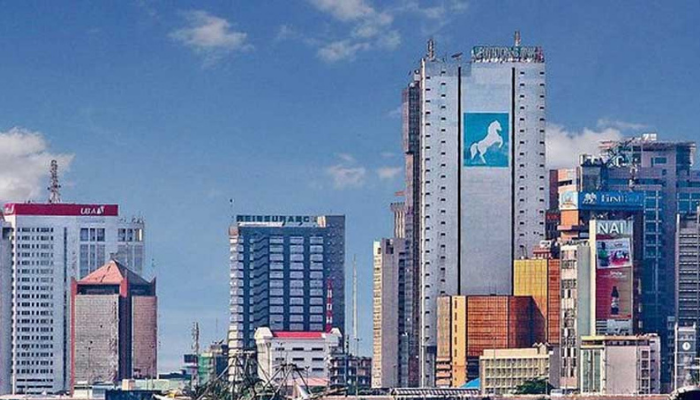Offshore expansion, Basel III, other key issues to shape banking sector 2022 – Tellimer report

As the year 2022 comes near, the Nigerian banking sector activities and growth would be driven by key trends such as offshore expansion, Basel III compliance, increased payment innovation, and retail banking among others according to a report by Tellimer, a London based emerging market investment insight and data firm.
Nigerian banks are looking towards the rest of Africa for growth and are embracing holding company structures to tap into non-banking businesses, the report noted.
Already some Deposit Money Banks (DMBs) are expanding to other African countries. Access Bank Plc, Nigeria’s biggest lender has in recent times embarked on strategic expansion to other African countries. In the first quarter of this year, the bank purchased a majority stake in African Banking Corporation of Botswana, a month after acquiring a South African bank.
“We want to be present in 22 countries over the next five years. And the idea is to be present in the large trade corridors of the continent, Herbert Wigwe, Access Bank’s CEO said in March.
Recently, some Nigerian banks adopted a holding company structure to diversify their revenue base and to remain competitive in the market. They include Access Bank, Sterling Bank and GTBank.
Another key trend that Nigerian banks have to face next year is the implementation of Basel III standard. The Central Bank of Nigeria (CBN) has set November 2021 as the effective date for banks to commence the implementation of Basel iii guidelines.
Basel III standard is a global, voluntary regulatory framework on bank capital adequacy, stress testing, and market liquidity risk.
The standard is intended to strengthen bank capital requirements by increasing bank liquidity and decreasing bank leverage.
Read also: Foreign investors prefer Nigerian banks’ Eurobonds to their stocks
This was in fulfilment of its announcement a year ago (September 11, 2020) that it would commence a phased implementation of Basel III standards and revise the existing Basel II guidelines on Regulatory Capital and Supervisory Review Process in 2020/2021 fiscal years.
The new regulation comes with more stringent capital, leverage and liquidity requirements. FBNH and mostly tier 2 lenders (ex. Stanbic) are more exposed, Tellimer report said.
According to the Tellimer report, Nigerian banks will continue to drive retail and digital banking, through investment in technology and growing agency networks.
The CBN’s e-naira and the recent PSB approval for telcos are catalysts for innovation, if the banks want to stay ahead.
“Our top stock picks is Zenith Bank for Buy, with Target Price (TP) of N35.00. We like it for its strong capital and liquidity position; and better dividend yield compared with peers, which we estimate at 13.6 percent for FY 21 (coverage average: 8.7%); and 3) efficient cost management structure,” the report said.
Nigerian banks margins have remained compressed, given the Cash Reserve Ratio (CRR) debits/special bills dynamics and increased pressure on funding costs.
Despite dampening asset yields, net interest income (NII) is still a primary driver of revenue for our coverage banks. However, trends show that fee income is gaining ground, mainly due to e-banking income. Higher yields and lower scale devaluation compared with 2020, has reduced Market To Market (MTM) gains from fixed income securities and FX revaluation.
Banks credit growth has slightly improved from last year, although several of the banks are still below the CBN’s 65 percent Loan To Deposit Ratio (LDR) minimum, Tellimer report said.
Most banks have made less provisioning in 2021 (ex. Access), in light of the improved economic climate and better prospects for specific obligors. Sector NPLs have moderated to 5.4% in July, from 6.1 percent in December 2020. Regulatory forbearance also helped control of NPLs. Banks remain heavily exposed to oil and gas (about 28% on average as at H1 21). With higher oil prices, that is not expected to change, the report said further.










